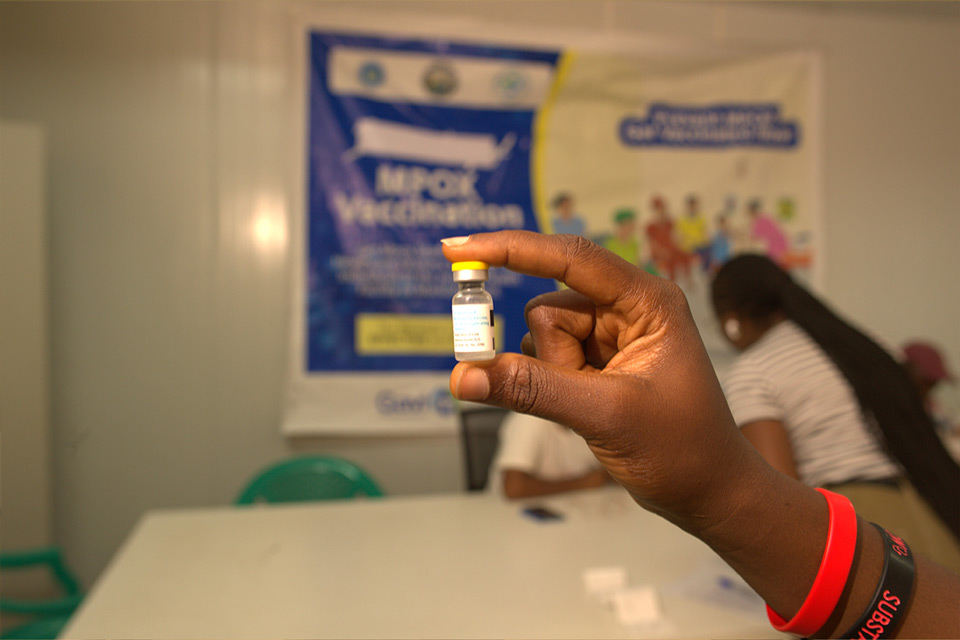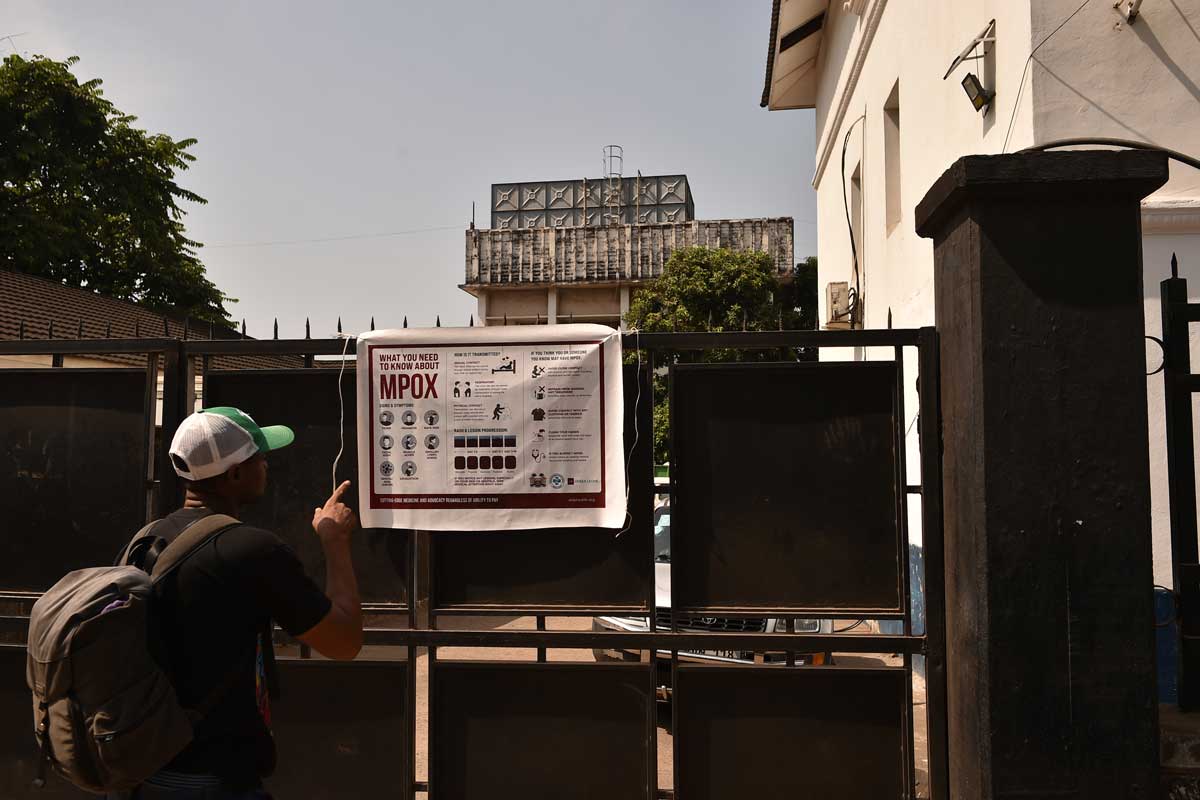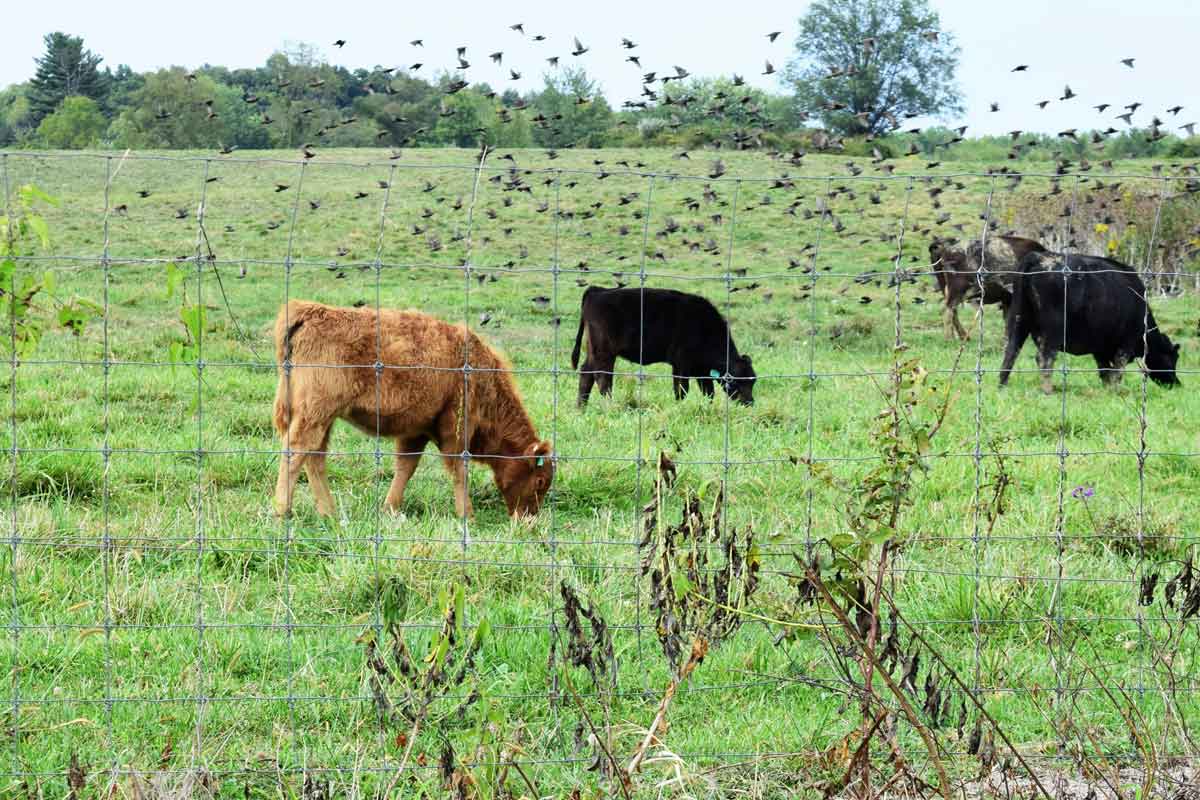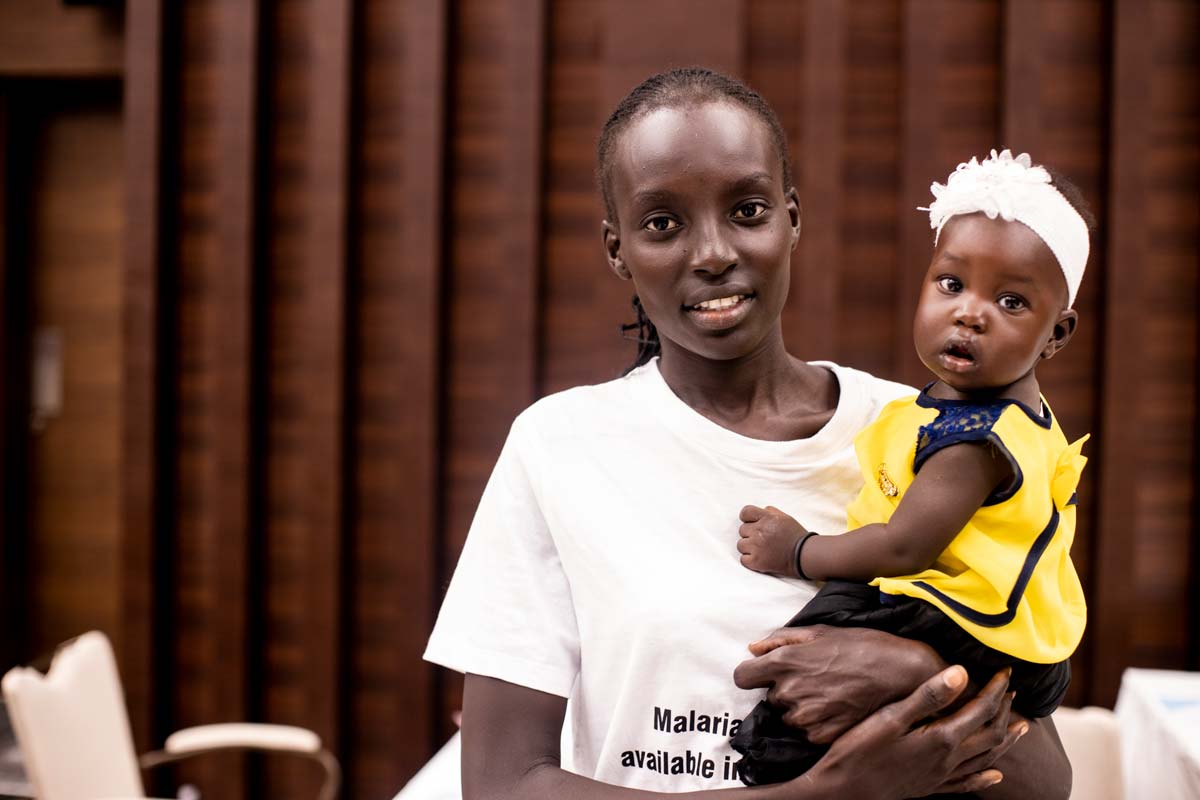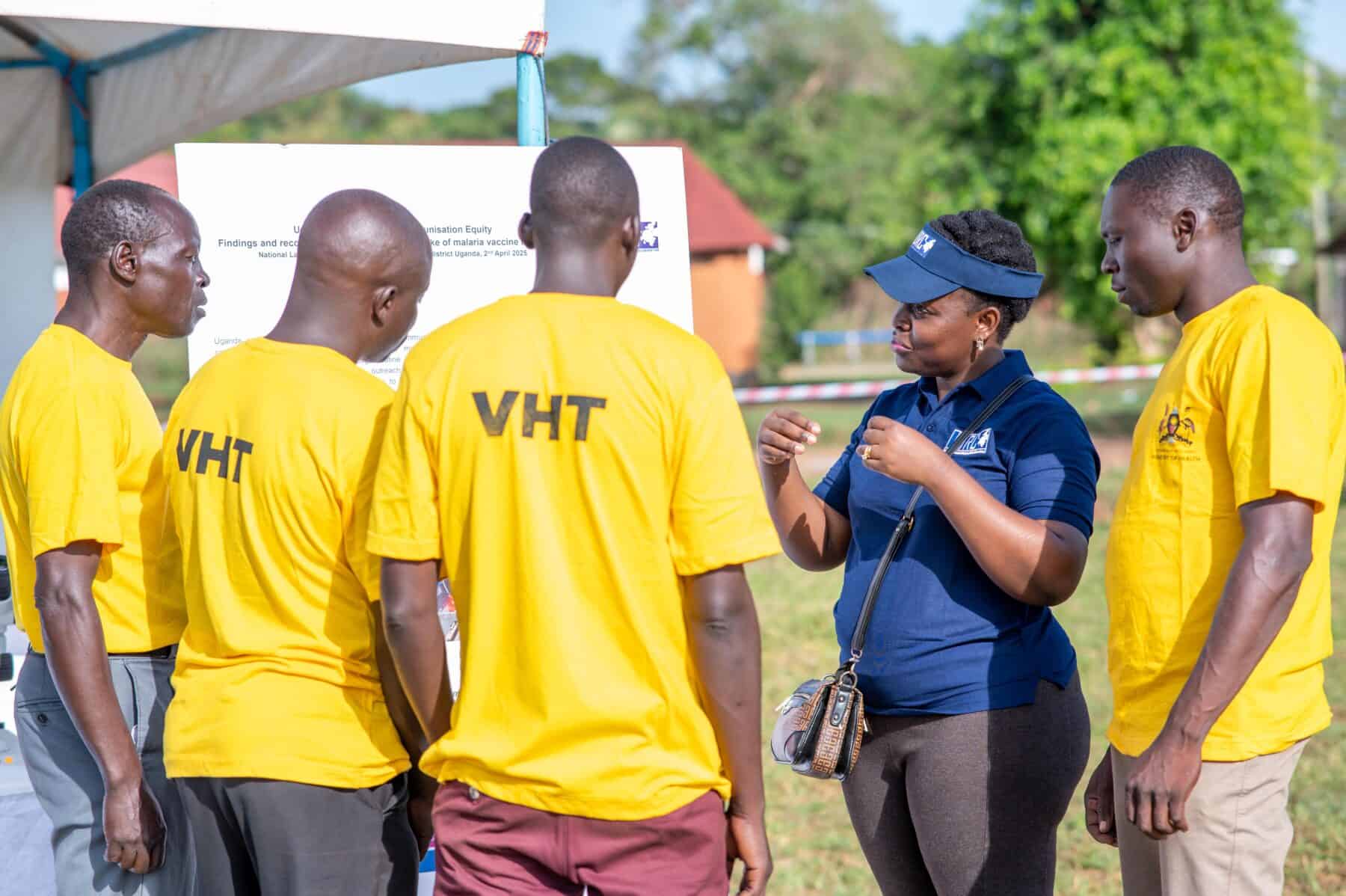Sierra Leone health workers line up for mpox jab amid growing outbreak
Freetown’s 34 Military Hospital has seen Ebola and Lassa Fever outbreaks and now it’s at the forefront of the country’s mpox response. The opportunity to get vaccinated was not one these seasoned frontliners were going to give up.
- 23 April 2025
- 4 min read
- by Saidu Bah

In late March, 61,300 eagerly-awaited mpox vaccines began to roll out in Sierra Leone in a vaccine drive that would prioritise health workers and contacts of mpox patients, and offer a dose of protection to the country’s most exposed.
The viral infection has killed three and sickened more than 477 since Sierra Leone’s mpox emergency was declared in January. The 26-bed mpox ward at 34 Military Hospital, a cutting-edge infectious disease facility on Freetown’s Wilberforce Military Base with a record of successfully tackling hard-hitters like Ebola, COVID-19 and Lassa Fever, has been operating at capacity for weeks.
For the nurses and doctors staffing the unit, that has meant working under the constant risk of infection. But the arrival of the vaccines – 58,300 of which were sent by Gavi, with the remainder donated by the Republic of Ireland – brought a measure of relief. On the hospital’s campus one recent morning, more than 100 health workers dressed in nurse’s scrubs and military uniforms lined up to receive the jab.
“I took the vaccine with my colleague health workers, and it had no major side effects, except for the mild side-effects of tenderness at the injection site, fatigue and mild fever, that easily subsides,” said Adama Kamara, a military captain and the Clinical Lead at the Mpox Treatment Center at 34 Military Hospital. “Many health workers are coming to take the vaccine – there is no hesitancy,” she added.
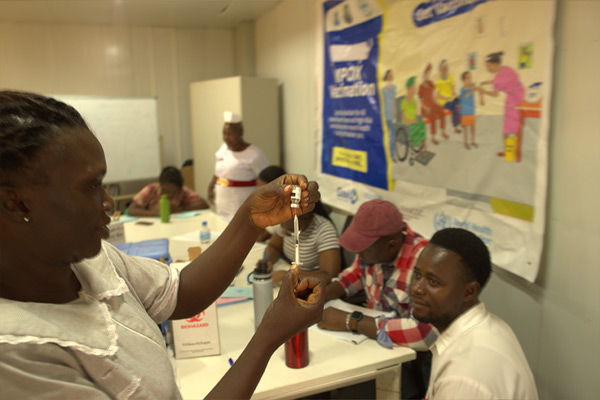
“The spread is now in communities”
Kamara and her team know a thing or two about scary epidemics. “The facility was established after the Ebola outbreak.” Kamara explains. “We started as an isolation unit and expanded to testing of infectious diseases, to treatment. The centre has just opened a medical research laboratory.”
Now 34 Military Hospital is the focal point for testing and treating Sierra Leone’s mounting tally of mpox patients. Thirty-eight of them have so far recovered and been released, but with the epidemic still growing, and beds on the mpox ward limited in number, more and more patients have needed to be passed on to the newly-established Police and Jui treatment centres.
Have you read?
“We want people to understand and know that don’t stay at home and assume you can take care of yourself. If you observe you have rashes or any symptoms that includes fever, chills, headache, swollen lymph nodes, visit the hospital for immediate testing for the mpox virus,” Dr Kamara told VaccinesWork.
“We have noticed that the spread is now in communities,” said Amanda Clemens, Social Mobilization Coordinator with the Expanded Programme for Immunization. “We are trying to break the chain of transmission through community mobilisation and engagement on other preventive methods – by enforcing hand washing, the use of face masks and discouraging touching people infected with the mpox virus.”
The vaccine has landed as a shot in the arm for the prevention effort. “So far vaccination is going smoothly within the Western Area.” Clemens said. “We are currently mobilising other treatment centres in hotspots where people got infected, to vaccinate their family members in the communities where they live.”
New front
Health workers are not the only group prioritised for immunisation during the current campaign. The aim is to protect the most at-risk, which also include security officers, contacts and relatives of mpox patients said Health Minister Austin Demby during the launch of the vaccination drive. The National Public Health Agency (NPHA) mounted a nationwide case search operation as part of its strategy to contain the spread of the virus, he added, to know how best to target the roll-out. The vaccines are recommended for individuals aged 12 and older, and will be deployed in disease hot-spots.
The Minister of Health, public health emergency agency staff, civil society and religious leaders bared their arms to lead the way, hoping to engender confidence in the so-far unfamiliar jab. “I will be the first person to take the vaccine as a show of leadership and faith in the safety and effectiveness of the vaccine and a useful preventive catalyst against mpox disease,” the health minister said. He encouraged communities to “fight the virus” by taking action to limit spread. “It’s a big risk to our families, community and the nation,” he said.

“I want to assure every Sierra Leonean that we will do everything possible, with the help of our partners, to make sure that we break the chain of transmission of mpox in Sierra Leone,” said Prof Foday Sahr, Director General of the National Public Health Agency (NPHA).
Sierra Leone became the 14th member state of the African Union to deploy the mpox vaccine following the arrival of the 61,300 doses from both Gavi and the Republic of Ireland. The Africa Centres for Disease Control and Prevention (Africa CDC), the World Health Organization (WHO) and UNICEF provided technical assistance to the roll-out.
